10 Mismanaged Franchises That Deserve Better
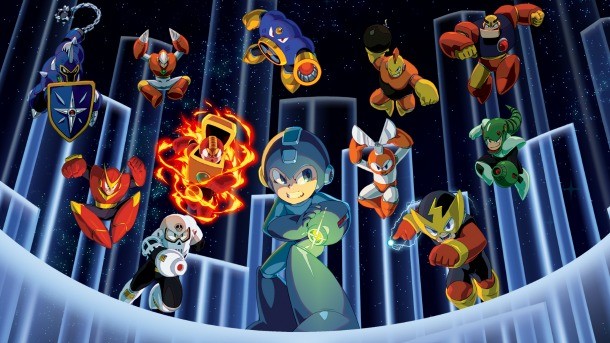
We always hear about the video game franchises that have been gone for years that deserve revivals. From Crash Bandicoot to Burnout, the list of series that fans have been clamoring for developers to give a second (or third) chance fluctuates with each passing year as developers try and satiate their fan-bases. While we always think about how great it would be if our favorite series from yesteryear were revived, having no entry at all could actually be preferred to having poor, mismanaged entries dangled in front of us.
For many fans of some of the biggest franchises in the game industry, that is a reality. Entry after entry, fans of some series endure poor decisions and unwanted directions. Sometimes, it doesn’t even take several poor entries; often it’s just the result of one bad decision putting that series on the wrong road. If you’re a fan of a series’ heyday, having that poor decision or unwanted direction dangled in front of you instead of the game you really want can be infuriating.
Here are 10 franchises that do just that; they haven’t gone completely dormant, but they fail to deliver to fans what they want. Read our list of mismanaged franchises and sound off in the comments with any that we missed.
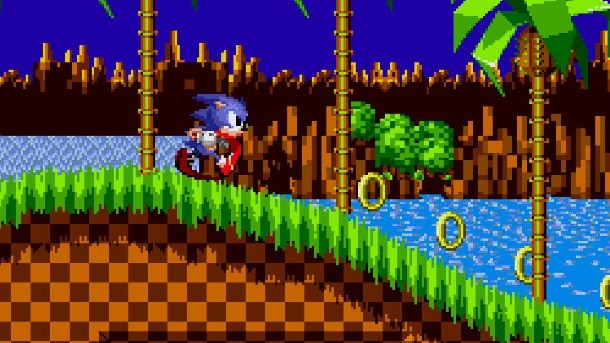
Sonic the Hedgehog
The Sonic the Hedgehog series has been a dramatic rollercoaster ride for its fans. The once-proud series that challenged Mario for the industry crown sputtered out in the early 2000s and never recovered. Games like Sonic 2006 show off what a mess development of the series has been at times, and even earnest attempts at giving fans what they want through Sonic the Hedgehog 4 have fallen flat. Perhaps the most fundamental misunderstanding of fan desires came with the Sonic Boom spin-off series, which redesigned the characters as more cartoony and the gameplay as slower and more methodical to largely negative reception.
Thankfully, other games have begun carrying the speedy platforming torch for ol’ Sonic while Sega works to figure out the right way to approach a game centered on the industry icon. Titles that reward players for quickly and stylishly completing levels like Action Henk or even Sega’s own Tembo the Badass Elephant will light up the eyes of the previously enthused Sonic fan, while less-derivative experiences like Speedrunners or the Rayman series could also help scratch that itch.
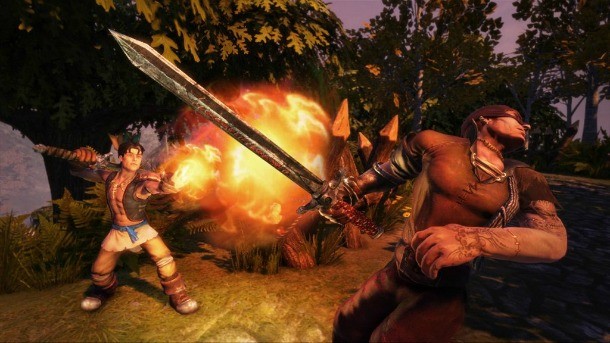
Fable
The promises of a morality system that not only affects how NPCs in the world react to you, but also how you look, were ambitious to say the least. Perhaps most impressive was that Fable series developer Lionhead rose to the challenge with a high level of success through its first three games. Unfortunately, as the series grew older, the IP was shoehorned into new genres through titles like Fable Heroes, a family-friendly side-scroller; Fable: The Journey, an on-rails Kinect experience; and Fable Legends, a cooperative action-RPG. Unfortunately, after a series of missteps in the direction of its flagship franchise, Lionhead was shuttered by Microsoft and Fable Legends was canceled during its beta phase.
Though Fable is a unique series, several third-person action-RPGs in a fantasy setting could sate fans’ desires. Sprawling RPGs with fantastical settings and morality systems like Dragon Age: Inquisition and The Witcher 3: Wild Hunt feature elements that players loved in Fable, but they don’t quite strike the same tone as Lionhead’s quirky series.
Click on to the next page to read more franchises that have failed to meet players’ expectations in recent years.
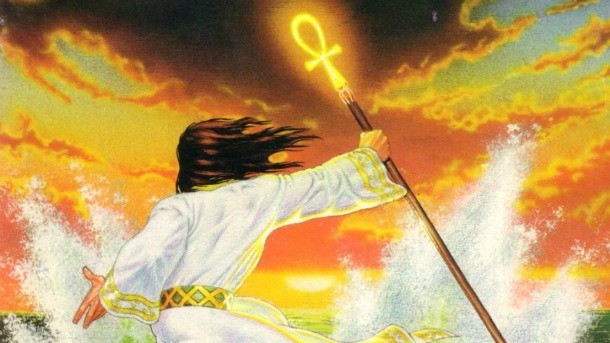
Ultima
One of the biggest RPG franchises in the industry has been all but a ghost in recent years. Without a main entry since 1999, Ultima players have found themselves relying on spin-offs and bastardizations of the original formula. The most recent releases were free-to-play titles Lord of Ultima and Ultima Forever: Quest for the Avatar in 2010 and 2013 respectively. Both of those games’ servers have since been shuttered, leaving even the most starving fans without an Ultima title to enjoy. The upcoming Underworld Ascendant is the closest thing players have to a true Ultima game on the horizon, and even that is the 3D style of gameplay versus the top-down experience that many fans of the classic titles crave.
Without the Ultima franchise holding any place of prominence in the modern game industry, the Elder Scrolls series has all but carried the banner for that classic style of game. Though key differences exist between Ultima and Elder Scrolls, the vast open-world exploration coupled with addicting character progression is a clear draw for old-school Ultima players. Ultima creator Richard Garriott is also working with Ultima Online director Starr Long and Dragonlance author Tracy Hickman on an ambitious new title called Shroud of the Avatar: Forsaken Virtues, which looks very much like a modern take on Ultima without the license.

Castlevania
The early Castlevania titles featured a dark, gothic tone and a heavy emphasis on close-range combat and exploration in a side-scrolling title. These themes were fully realized with 1997’s Castlevania: Symphony of the Night on PlayStation. This evolution of the beloved franchise was so popular that it helped spawn a subgenre that it shares with the Metroid franchise. The series has appeared in an incredible number of different forms; the most recent was the Lords of Shadow reboot of the series, which, while a great direction as a spin-off, did little to satisfy fans of the original formula. Now, with Konami in a strange place as a publisher, Japanese players are stuck with strange adaptations of the franchise in the form of things like erotic pachinko machines – not exactly what the series faithful were hoping for.
If you count yourself among the neglected Castlevania faithful, you’re not alone. Thankfully, several independent developers have taken note and are developing for this exact audience. Titles like Heart Forth, Alicia, Chasm, and Guacamelee are all designed with Castlevania fans in mind, while even longtime Castlevania figurehead Koji Igarashi is developing a spiritual successor to the series away from Konami called Bloodstained: Ritual of the Night.

Mega Man
One of the most classic 2D franchises of all time feels as though it has been all but abandoned by its developer and publisher, Capcom. Mega Man 10 serves as the most recent mainline entry in the series, but the Blue Bomber has appeared in everything from Super Smash Bros. to Marvel vs. Capcom. In addition, Capcom has revealed plans for a 2017 Mega Man mobile game – just what fans of precision platforming want: touchscreen controls. Outside of 2015’s Legacy Collection, it’s been rough for fans of classic Mega Man.
Those who are disappointed by Mega Man’s recent direction can take solace in the works of several other developers, including longtime Mega Man producer Keiji Inafune. Inafune left Capcom in 2010 to found a new studio called Comcept. Comcept is currently on the brink of releasing the long-anticipated Mighty No. 9, a spiritual successor to Mega Man in nearly every way – though it has had its own signs of mismanagement with several delays in tow. In addition, games like Azure Striker Gunvolt and Shovel Knight can also help players cope with the lack of a true Mega Man game in recent years.
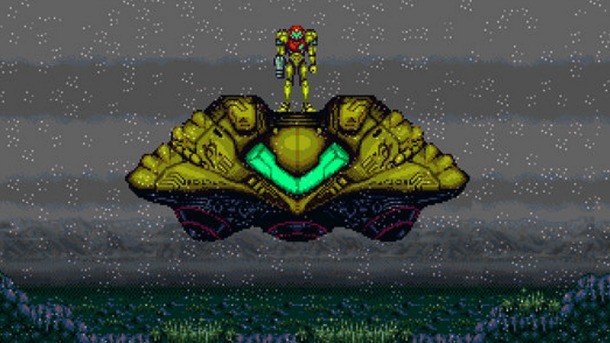
Metroid
Super Metroid defines not only the series, but the 1994 game also helped define a genre. While 2002 saw a true successor to Super Metroid in Metroid Fusion and 2004 brought us Metroid: Zero Mission, an enhanced remake of the original game, Nintendo has been hardheaded about giving fans more of that exploratory 2D gameplay. In its place, fans have been given the Metroid Prime trilogy, which was certainly an excellent spin-off franchise. However, Metroid die-hards have most recently suffered through the poorly received Other M in 2010, and last year’s disappointing announcement of Metroid Prime: Federation Force, which is scheduled to release this year.
Though Nintendo has shown a reluctance to give players a true successor to the early Metroid games, those wanting that retro side-scrolling goodness can find comfort through the work of a number of indie developers. Games like Axiom Verge, and Ori and the Blind Forest, and the upcoming Ghost Song are great examples of modern takes on the classic Metroid formula.
On the next page, we look at more franchises that have let fans down with their directions.

Star Wars: Battlefront
After two popular entries in the Star Wars franchise in two consecutive years, it looked like LucasArts and Pandemic had a surefire hit on their hands. Unfortunately, Free Radical Design’s unannounced Star Wars: Battlefront III was canceled in 2008 and the series went into limbo, aside from some handheld and mobile titles. In 2015, EA and DICE released Star Wars: Battlefront on PS4, Xbox One, and PC. The game plays well and is beautiful in action, but a lack of content (including no campaign) and an expensive season pass has made it the source of controversy. The excuse delivered by the developers is that they had to keep rooted in the original trilogy since it is officially canon to the recently revamped Star Wars universe, but when you can have Greedo kill Luke Skywalker on Jakku, it shows that there was some potential flexibility that the developers could have further explored.
Though Star Wars: Battlefront is still very much alive, the industry is so full of competitive shooters that are brimming with content. From grittier series like the Call of Duty to more colorful options like Overwatch, you have several places you can go if you’re looking for solid first-person shooting. The advantage that Battlefront will always have, however, is that it possesses the Star Wars license.

SimCity
When it comes to city builders, no series has the name recognition of SimCity. The series rose to prominence in the late ‘80s and early ‘90s by delivering the definitive urban-management experience. After a decade-long hiatus (save for the quite different SimCity Societies), the series returned in 2013 with EA and Maxis’ SimCity. Sadly, even outside of the baggage surrounding online requirements and technical issues, the game had strange restrictions to things like city size that made it feel like a lackluster entry in a once-great series.
Luckily, developer Colossal Order heard the cries of SimCity fans and in 2015 released Cities: Skylines, a modern city builder with a decidedly retro feel. Divorcing itself from the SimCity blunders of 2013, Cities: Skylines gives players massive plots of land to play with, intelligent traffic A.I., and nary a hint of an online requirement. The game is also very mod-friendly and has been supported by Colossal Order through official post-release expansions.

Star Fox
The Star Fox series seems to have peaked early, as Star Fox and Star Fox 64 remain indisputably the best entries in the franchise. Shortly after the success of Star Fox 64, Nintendo released Star Fox Adventures, a fun and charming third-person action game that deviated from the classic formula to an extreme degree. While many enjoyed that game, fans demanded a new flight-focused entry for the IP. Star Fox: Assault, a Bandai Namco-developed title, looked to be that title, but its awkward on-foot sequences and strange design choices prevented it from being the game fans wanted. Even the recent Star Fox Zero, a title that essentially served as a modern reboot of Star Fox 64, disappointed many thanks to its reliance on motion controls and the Wii U’s second screen.
Though Star Fox is a unique series that includes fun storylines and lovable personalities, modern space combat games can help Star Fox fans cope. Games like Strike Suit Zero, the upcoming Ace Combat 7, and Race the Sun are examples of games that can help fill the void, but the industry could certainly do with more good titles to fill the genre out more.

Metal Gear Solid
Metal Gear Solid sticks out on this list as the only franchise to not have a poorly received or controversial entry as its most recent release. Despite that, behind-the-scenes drama between Hideo Kojima and publisher Konami not only led to a final act that felt somewhat rushed, but also the departure of Kojima from Konami. With conspicuously unresolved plot points and F.O.B. features that essentially extort players, we were left with a great game that could have been legendary had it not seen its creator driven out over the course of development. Even Kiefer Sutherland’s heavily advertised role was severely downplayed as Snake made the transition to a “mostly silent protagonist.”
With Kojima no longer with Konami, the future of the series is very much up in the air as the iconic director forges ahead with his new studio sans the Metal Gear license. We don’t know exactly what Kojima is working on now, but we’re hoping that it feels like the Metal Gear games we may never get.
Which franchises do you think deserve better than what we're getting? Sound off in the comments below!

Get the Game Informer Print Edition!
Explore your favorite games in premium print format, delivered to your door.
- 10 issues per year
- Only $4.80 per issue
- Full digital magazine archive access
- Since 1991






